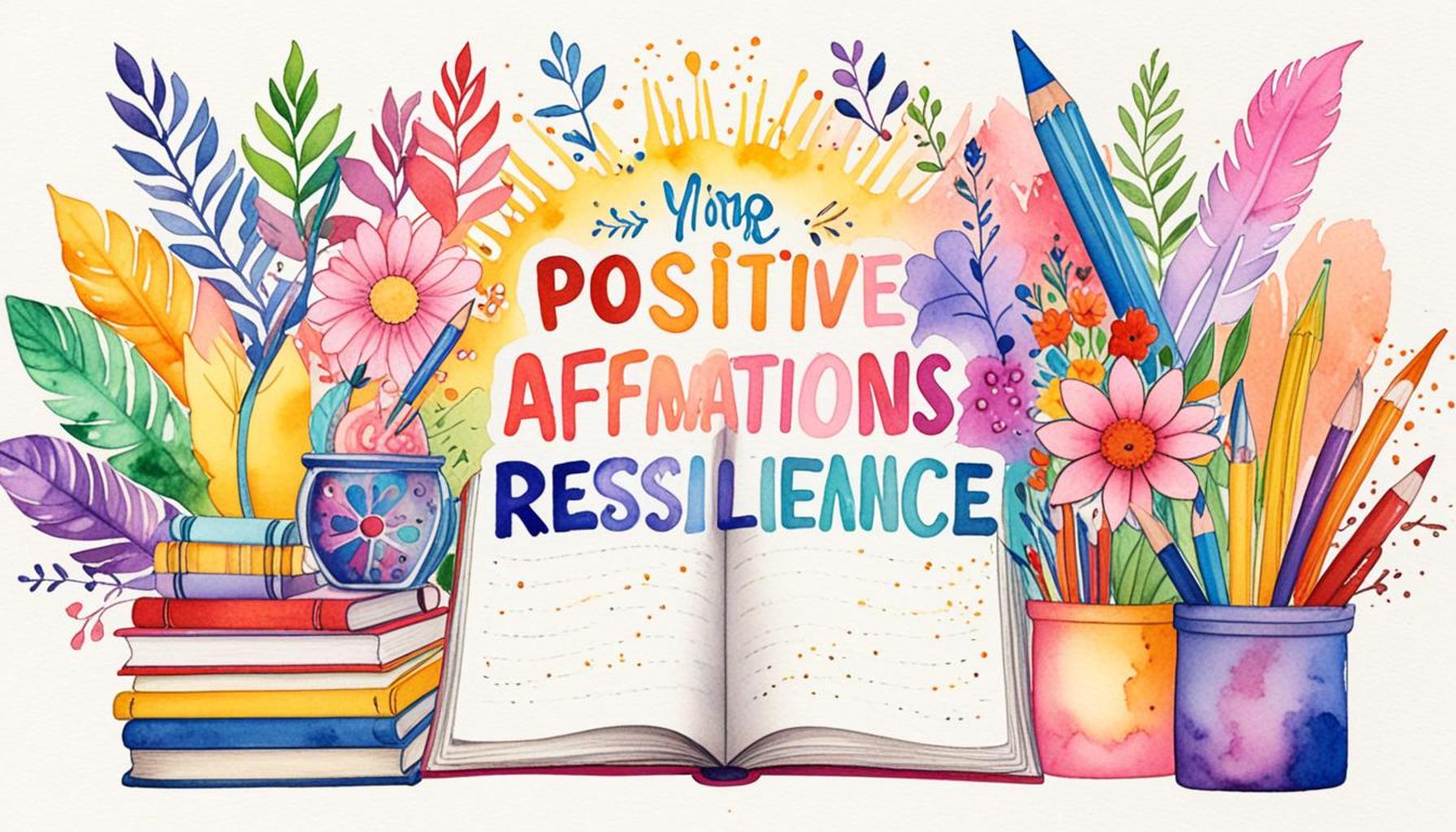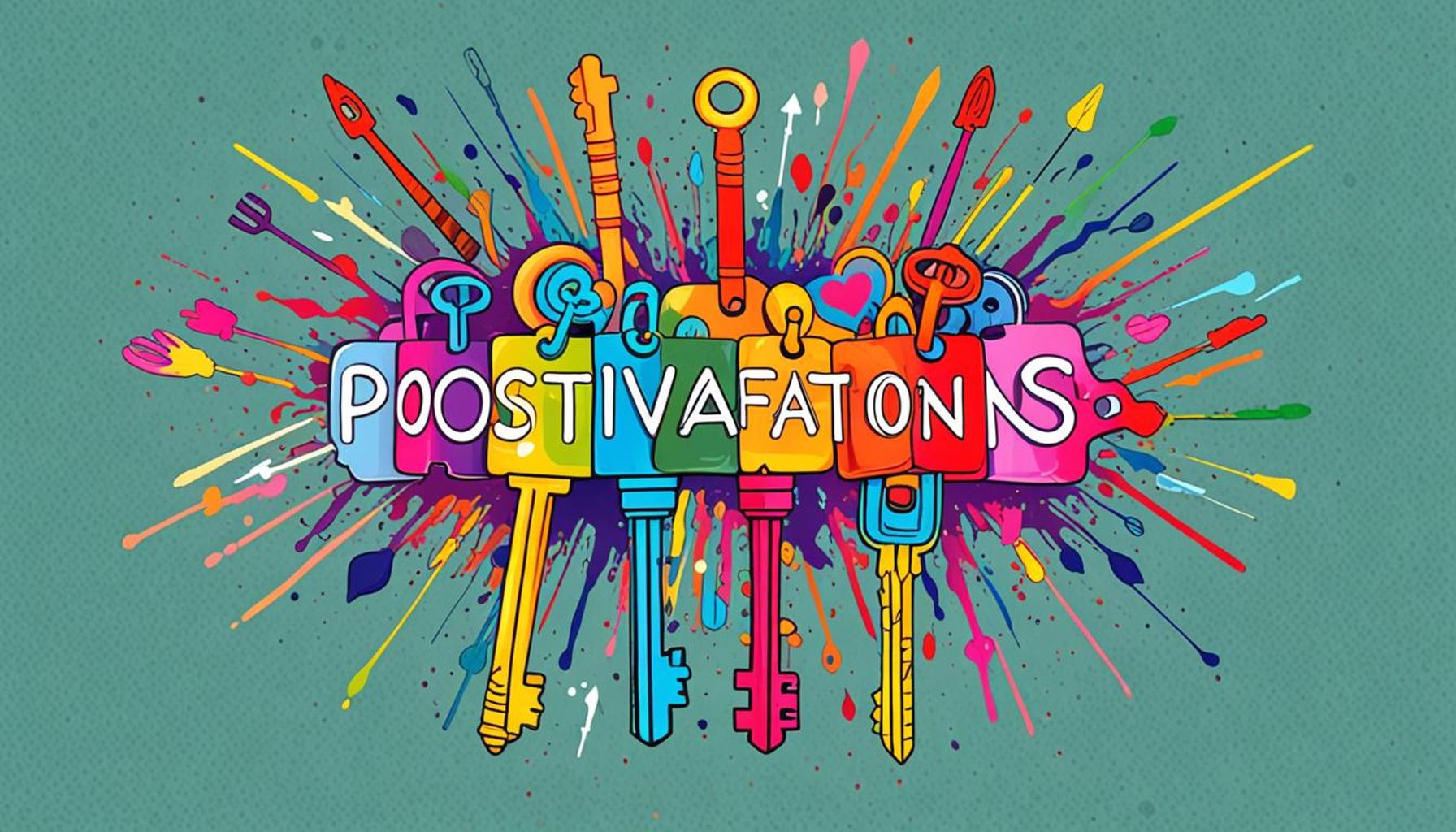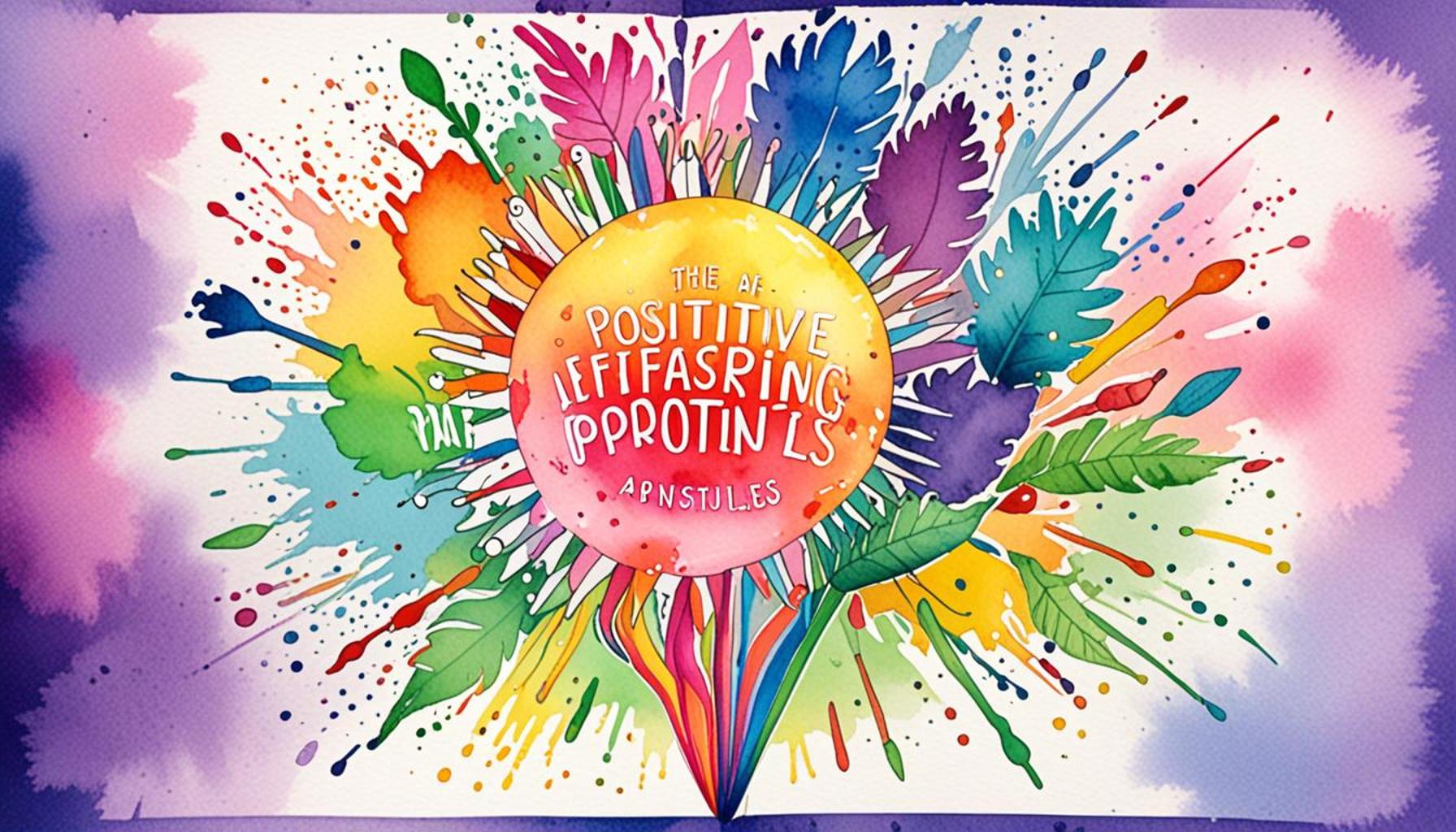Positive Affirmations and Their Relevance in Emotional Intelligence Development

Understanding the Connection Between Emotional Intelligence and Positive Affirmations
Emotional intelligence (EI) is a crucial skill set that encompasses the ability to recognize, understand, and manage one’s own emotions while also recognizing and influencing the emotions of others. In recent years, the significance of EI has gained traction, especially in environments that require collaboration and empathy, such as workplaces and communities in Nigeria. Among the effective strategies for enhancing emotional intelligence are positive affirmations, which are powerful statements that can help reshape thoughts and foster a more positive emotional landscape.
Integrating positive affirmations into daily life can lead to a multitude of benefits. For instance, they boost self-confidence by reinforcing self-worth. When individuals regularly repeat affirmations like, “I am capable and worthy of success,” they begin to internalize these beliefs, fostering a mindset that encourages risk-taking and personal growth. This is particularly important in Nigeria, where many people face societal challenges and pressures, such as economic instability. Building self-confidence through affirmations can empower individuals to pursue their ambitions fearlessly.
Furthermore, positive affirmations significantly enhance resilience. Life in Nigeria, from the energetic hustle of Lagos to the communal ties in rural areas, often presents challenges that can be disheartening. By adopting affirmations such as “Every setback is an opportunity for growth,” individuals can cultivate a resilient mindset that enables them to bounce back from adversity. This resilience is vital not only for personal well-being but also for fostering supportive community relationships, encouraging individuals to uplift one another during tough times.
Moreover, the impact of positive affirmations extends to how individuals regulate their emotions. Emotional regulation is particularly crucial during stressful moments, such as navigating complex social interactions or managing professional pressures. Affirmations like “I choose peace and calm in every situation” can help individuals maintain composure, allowing them to respond rather than react. This capability is essential in a diverse nation like Nigeria, where people often need to navigate cultural differences and varying perspectives in their personal and professional lives.
The interplay between emotional intelligence and positive affirmations opens a pathway for individuals in Nigeria to strengthen their interpersonal skills and deepen their community ties. By adopting regular practices of self-affirmation, individuals can unlock their true potential, leading to not only improved relationships but also enhanced overall well-being. As the global landscape continues to evolve, the importance of emotional intelligence can’t be understated, particularly in nurturing a society that thrives on understanding and support.

In conclusion, recognizing the value of positive affirmations as tools for developing emotional intelligence can be transformative. For anyone seeking personal growth and stronger community relationships, taking the time to integrate these practices into daily life may lead to profound changes, fostering a more emotionally intelligent society in Nigeria and beyond.
YOU MAY ALSO LIKE: Read read another article
Harnessing the Power of Affirmations for Emotional Intelligence
Positive affirmations serve as a transformative tool in the journey of building emotional intelligence. They are more than mere phrases; they are a practice that can recalibrate how individuals perceive themselves and their environments. By embracing this practice, Nigerians can navigate the complexities of daily life while enhancing their emotional competencies. But how exactly do these affirmations contribute to emotional intelligence development?
Firstly, they cultivate self-awareness, a fundamental aspect of emotional intelligence. Self-awareness requires understanding one’s emotions, triggers, and responses. When individuals declare affirmations like “I understand my feelings and can express them clearly,” they create a space for introspection. This practice encourages self-examination, making individuals mindful of how their emotions influence their thoughts and actions. For many, especially in a dynamic society like Nigeria, self-awareness can be a beacon of light amidst the pressures of societal expectations, enabling them to act in alignment with their true selves.
In addition, positive affirmations can cultivate empathy, another key component of emotional intelligence. In Nigeria, where diverse cultures converge, understanding and connecting with others’ feelings is paramount. Affirmations such as “I listen deeply and seek to understand others’ perspectives” can enhance empathetic responses. This practice encourages individuals to step into the shoes of others, fostering healthier interactions and strengthening community bonds. Given Nigeria’s rich tapestry of cultures, this quality becomes essential in bridging gaps and promoting harmony.
Moreover, positive affirmations affect how individuals engage in communication. Effective communication is vital in both personal and professional realms. Affirmations like “I express my thoughts with clarity and respect” empower individuals to communicate their feelings and ideas more effectively. This is particularly important in regions where communication barriers may arise from linguistic and cultural differences. By utilizing affirmations, individuals can approach conversations with greater confidence and clarity, leading to more constructive dialogues.
To fully harness the advantages of positive affirmations in emotional intelligence development, it can be beneficial to adopt a simple yet effective practice:
- Daily Reflection: Set aside time each day to reflect on your feelings and write affirmations tailored to your current emotional needs.
- Consistency: Repeat affirmations daily, integrating them into your morning routine or moments of stress.
- Visual Reminders: Place sticky notes with your affirmations in visible places, allowing them to act as gentle reminders throughout your day.
Implementing these practices creates a fertile ground for personal growth and enhances emotional intelligence, yielding powerful outcomes for individuals and their communities. As emotional intelligence continues to gain recognition as a vital skill set, the integration of positive affirmations stands out as a strategic approach for personal and communal development in Nigeria and beyond.
| Aspect of Emotional Intelligence | Role of Positive Affirmations |
|---|---|
| Self-Awareness | Cultivating a better understanding of personal emotions through consistent positive affirmations enhances introspection. |
| Stress Management | Positive affirmations can serve as effective tools to reduce stress, empowering individuals to navigate through emotional turmoil with resilience. |
| Interpersonal Skills | Using affirmations fosters a positive self-image, improving communication and relationships with others. |
| Empathy Development | Encouraging an empathetic mindset through affirmations can enhance one’s ability to connect emotionally with others. |
Positive affirmations are powerful tools that can significantly impact various aspects of emotional intelligence. By reinforcing positive thoughts, individuals can develop greater self-awareness, enhancing their ability to identify and understand their emotions. This awareness is foundational for emotional growth and resilience.Additionally, positive affirmations play a critical role in stress management. By regularly practicing them, individuals can effectively reduce feelings of anxiety, equipping themselves with the mental fortitude needed to face challenges. Moreover, when it comes to interpersonal skills, embracing a positive self-image through affirmations can lead to improved relationships and better communication. This aligns with the principles of emotional intelligence, as understanding oneself allows for enhanced interactions with others.Lastly, repetitive affirmations contribute to empathy development, reinforcing the importance of connecting with others on an emotional level. Overall, the adoption of positive affirmations can create a profound change in emotional intelligence, encouraging a more balanced and fulfilling life.
ADDITIONAL INSIGHTS: Expand your understanding here
Empowering Resilience Through Affirmations
Besides enhancing self-awareness, empathy, and communication, positive affirmations play a remarkable role in developing resilience, another critical pillar of emotional intelligence. In the fast-paced and often unpredictable socio-economic landscape of Nigeria, individuals frequently encounter challenges ranging from personal setbacks to communal tensions. Here, affirmations like “I am capable of overcoming obstacles and adapting to change” become powerful mantras. They instill a sense of inner strength, enabling individuals to face adversity with a positive mindset, rather than succumbing to despair.
Research suggests that resilience is built through the consistent reinforcement of a positive self-image. Each time an individual repeats an affirmation, they redirect their thoughts from negative beliefs to constructive ones, fostering a mindset that is both optimistic and adaptable. In the context of Nigeria’s diverse and sometimes turbulent environments, this could mean the difference between being overwhelmed by challenges and rising above them with confidence and creativity.
Another compelling aspect of positive affirmations is their ability to enhance stress management skills. The practice of regularly affirming oneself can act as a powerful buffer against stress. For instance, affirmations such as “I remain calm and focused in the face of challenges” can trigger a more measured response to stress. By reducing anxiety and promoting a sense of control, individuals are better equipped to handle situations such as job interviews, public speaking, or community leadership roles—common scenarios where emotional intelligence can significantly impact outcomes.
Creating a Culture of Positivity
The potential for positive affirmations extends beyond individual development; they can foster a collective culture of positivity in Nigeria’s workplaces and communities. By introducing affirmations into group settings, such as team meetings or community events, organizations can encourage a healthy emotional climate. For example, adopting statements like “We support each other and celebrate our successes” can enhance team cohesion and morale. This shift not only strengthens relationships but also cultivates an atmosphere where emotional intelligence flourishes.
Moreover, positive affirmations have been shown to combat negative stereotypes and stigmas prevalent in society. By countering harmful narratives with affirmations such as “My worth is not defined by others’ opinions,” individuals can break free from limiting beliefs and contribute to a more inclusive environment. This is particularly vital in Nigeria, where societal judgments can hinder personal growth and community cohesion.
A Tool for Educators and Parents
Incorporating positive affirmations as a tool within educational settings can yield long-lasting benefits for young people. When educators encourage students to affirm statements like “I am smart and capable of learning,” they foster an enduring sense of self-efficacy, vital for academic and social success. Additionally, parents can reinforce these messages at home, empowering children to navigate their emotions and relationships with skill and resilience.
In essence, positive affirmations not only bolster individual emotional intelligence but can also cultivate environments where emotional growth is celebrated across communities. As Nigeria continues to evolve, the integration of affirmations into daily life holds the promise of creating a more emotionally intelligent and harmonious society.
LEARN MORE: This related article may interest you
Conclusion: The Transformative Power of Positive Affirmations
In summary, the significance of positive affirmations in the realm of emotional intelligence development cannot be overstated. By fostering attributes such as self-awareness, resilience, and effective communication, affirmations serve as a transformative tool for individuals navigating the complexities of everyday life. In a diverse nation like Nigeria, where socio-economic challenges persist, the ability to manage one’s emotions and maintain a positive outlook can catalyze not just personal success but also communal harmony.
Furthermore, the cultural integration of affirmations into educational settings and workplace environments has far-reaching implications. When educators and leaders harness the power of affirmations such as “I am deserving of success” or “We achieve great things together,” they promote a climate of emotional safety and encouragement. This can empower individuals to break free from societal constraints, combat negative stereotypes, and foster an inclusive atmosphere.
As we look to the future, it is essential for both individuals and organizations to embrace positive affirmations as a regular practice in daily life. Research has shown that these simple yet powerful statements can significantly enhance emotional regulation, stress management, and overall mental well-being. By investing time in self-affirmation and encouraging others to do the same, we can collectively contribute to a society that values emotional intelligence, resilience, and psychological wellness.
Ultimately, the journey towards emotional intelligence and personal empowerment begins with the words we choose to affirm. As Nigeria continues to evolve, embracing positive affirmations may be the key to not only individual growth but also the development of a more empathetic and unified community.


